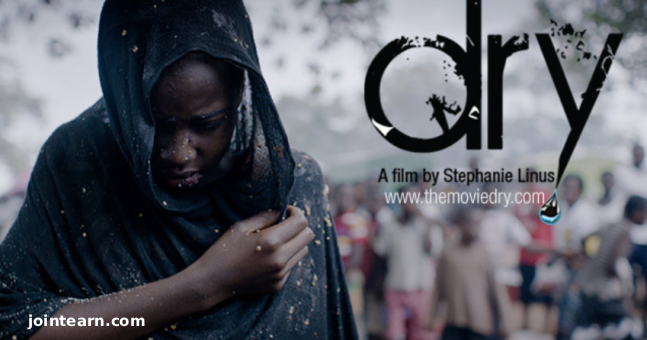
Stephanie Linus’ award-winning film, Dry, has once again become a rallying point in Nigeria’s ongoing discourse on gender-based violence and child rights, as the renewed #JusticeForOchanya movement gains momentum.
The powerful social drama is finding fresh resonance among Nigerians calling for justice, accountability, and systemic reform in response to persistent cases of child abuse and sexual violence.
Originally released in 2015, Dry tells the intertwined stories of Dr. Zara, a successful African doctor haunted by her traumatic past, and Halima, a 13-year-old girl forced into marriage with a 60-year-old man in a rural village. Through their experiences, the film sheds light on the harsh realities of child marriage, rape, and obstetric fistula (VVF) — issues that continue to impact vulnerable girls across many communities in Nigeria.
The film’s themes have resurfaced as the country once again confronts the tragic case of Ochanya Ogbanje, a 13-year-old who died in 2018 after years of sexual abuse allegedly perpetrated by a guardian and his son. The renewed public outrage has drawn attention to the justice system’s response to gender violence — and Dry has emerged as a cultural mirror reflecting these ongoing societal failures.
Speaking on the renewed attention the film has received, Stephanie Linus, who wrote, directed, and produced Dry, said the story was created to serve as both a catalyst for empathy and a tool for advocacy.
“Dry was created to spark conversation and empathy, but most importantly, to drive change,” Linus said. “The #JusticeForOchanya movement reminds us that these stories are not fiction for many Nigerian girls. We must continue to use every platform — including film — to demand justice and ensure such tragedies never happen again.”
Since its release, Dry has received widespread critical acclaim, winning several major awards, including the Africa Magic Viewers’ Choice Award (AMVCA) for Best Overall Movie in Africa, the Africa Movie Academy Award (AMAA) for Best Nigerian Film and Best Young Actor, as well as the Programmer’s Award for Narrative Feature at the Pan African Film Festival (PAFF) and Best Protagonist at the Bentonville Film Festival.
Beyond its cinematic success, the film continues to serve as a tool for education, advocacy, and policy engagement, with screenings often used to raise awareness on gender equality, girls’ education, and healthcare access for victims of child marriage and VVF.
In 2025, as Nigeria re-examines its commitment to protecting women and children, Dry remains as relevant as ever — a poignant reminder of how storytelling can ignite empathy, demand accountability, and inspire change.


Leave a Reply